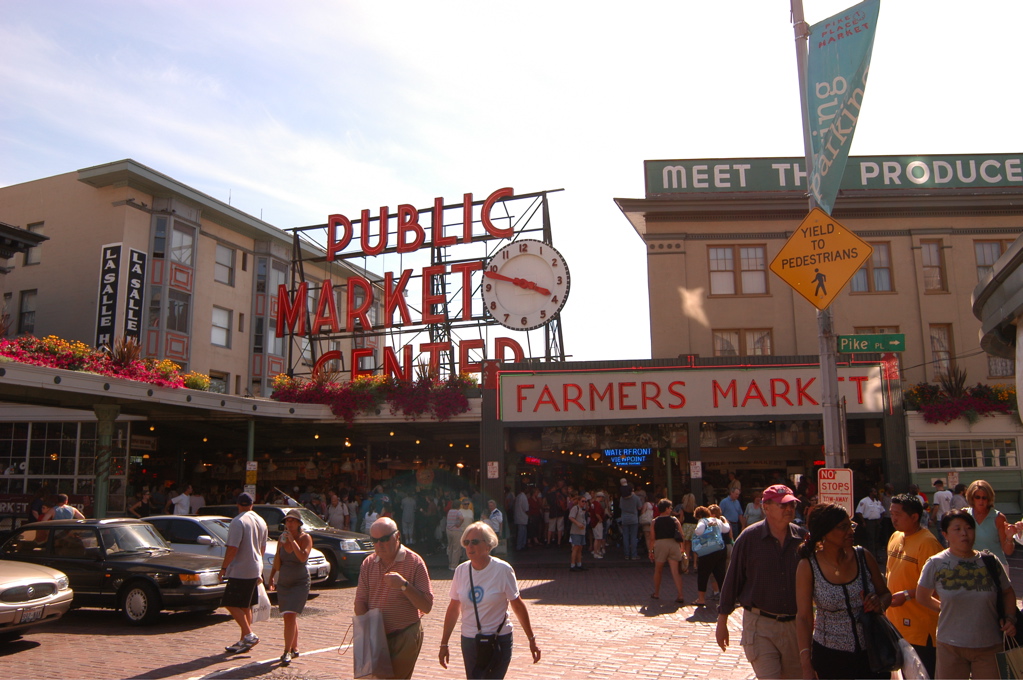Post by Finch on Dec 11, 2020 19:57:20 GMT
While struggling against strangers, wild animals, and disease, the survivors of Seattle find themselves often occupied with a far more mundane concern: that of food. Generally, tracking this resource would be unimportant in most roleplaying scenarios, as the presence of food would be implied. However, in a survival situation such as that presented in Remnants, food shortages are a concern that must be constantly mitigated. The absence of a system to keep track of food would remove tension from such a survival situation.
The purpose of this system is not to force players to micromanage mechanics. This system should be unintrusive, and should only spur roleplay. If this turns out to not be the case, this system may be altered. It is currently in a sort of testing phase.
The food system does not keep track of individual items of food. Instead, each faction has a "stockpile" of food, which is just a number that changes as said faction gains or loses food. The values of faction food stores are described in their description posts, and are changed by staff as needed.
The acquisition of food in Remnants is an activity done in roleplay, and is thus managed by players. To gain food, characters must engage in a scavenging thread (or at least a thread involving scavenging in some way, whether that was its original intent or not.) Every thread in which characters are able to locate food will add food to their faction’s stockpile. Even if it is not specifically roleplayed-out, even a vague mention (‘they searched the building’) still qualifies for this.
The specific amount of food located is based upon a number of factors, as described in the following table. These values stack--so a single scavenging thread could bring back a whole feast’s worth of food! But be warned, the greater the plunder, the riskier the mission.
The specific amount of food located is based upon a number of factors, as described in the following table. These values stack--so a single scavenging thread could bring back a whole feast’s worth of food! But be warned, the greater the plunder, the riskier the mission.
| Occurrence | Food Added |
| Characters go scavenging, searching for food or other objects. This can include scavenging or exploration threads. | +2 per character |
| While scavenging, characters enter an unknown building or area, which they have not explored before. | +1 per character |
| While scavenging, characters enter a dangerous building or area, such as a stranger nest. | +2 per character |
| While scavenging, characters must fight off hostiles, whether they be strangers, wild animals, or other kids. | +3 per character |
For example, a thread involving three characters that enters a stranger nest would receive 18 units of food! 6 for just going scavenging, 3 for entering an unknown building, and 6 for entering a dangerous area. If they have to fight off strangers to keep their prize, this increases to 27 units. Enough to feed a whole faction-- but worth it, when loss of life is at stake?
Once food is acquired, of course, the obvious use is to eat it. This is the main use of food units in Remnants. At the start of every real-world month, every character in a faction eats 1 unit of food. This is then removed from faction stores.
If there is not enough food to feed every faction member, the faction becomes hungry. They have enough food to survive, if they ration, but they will quickly grow hungered. At this point, scavenging becomes imperative. There are no gameplay impacts to being hungry, but it should be shown in roleplay.
If there is not enough food to feed every faction member, the faction becomes hungry. They have enough food to survive, if they ration, but they will quickly grow hungered. At this point, scavenging becomes imperative. There are no gameplay impacts to being hungry, but it should be shown in roleplay.
If there is no food in a faction’s stores at the end of a real-world month, then the faction becomes starved. Starved faction members drop to 50% of their hitpoints, and are exhausted and sick. While starving characters can still scavenge, all of their abilities are considered halved (so that a character with 4 strength would have 2 strength while starving.)
If the month ends once more without any food being added to the stockpile, faction members will starve to death. This can be mitigated in roleplay--for example, staying with another faction.
With these consequences, food is a vital resource for each faction to maintain. Food can also be used for other things--mainly trading. A faction’s food stores are a physical resource. Somewhere in their base, they actually have a physical food stockpile. Thus, food units can be traded among factions.
If the month ends once more without any food being added to the stockpile, faction members will starve to death. This can be mitigated in roleplay--for example, staying with another faction.
With these consequences, food is a vital resource for each faction to maintain. Food can also be used for other things--mainly trading. A faction’s food stores are a physical resource. Somewhere in their base, they actually have a physical food stockpile. Thus, food units can be traded among factions.
As societies become more established in Remnants, their food sources may not depend entirely upon scavenging. The Pasture Kids are a current example of this. Additionally, scavenging is not the only method of acquiring food while on the streets of Seattle.
The following table lists the monthly food gains from various sources. Currently, the Pasture Kids are the only faction with any of these gains, but other factions may develop in order to acquire them.
| Source | Food Added |
| Maintaining a farming or gardening operation. | +1 per month |
| Maintaining a population of livestock that provide a continuous food source (cattle, other milk-bearing animals, chickens) | +2 per month |
| Maintaining a population of livestock that are killed for meat (pigs, rabbits). | +1 per month |
Outside of scavenging, the following methods may be used to acquire food. Similar to scavenging, these methods must be roleplayed out, at least in a vague sense.
| Occurrence | Food Added |
| Killing a medium-sized animal (dog, coyote) for meat. | +1 |
| Killing a large animal (deer, wolf, cow) for meat. | +2 |
| Successfully catching fish. | +2 |
Note that these actions all require rolling of some sort. Fishing will require a fishing roll, while killing animals for food may involve hunting or combat. Thus, these methods are viable if the hunters/fishermen are skilled, while scavenging can be accomplished by almost every survivor.
Any other scenario that may come up in roleplay in which food would logically be acquired may also apply. These tables are in no way comprehensive. If a player believes that an action in-roleplay should merit their faction food units, they should bring this up to a staff member. The staff member may decide on the proper amount of food units to award. If this food gathering method is likely to be repeated, it will be added to the above table.
Unlike factions, loners (or those outside of the factions) cannot depend on their factionmates for food. Those playing loners may keep personal food banks if they wish, but it is not mandatory. Due to the nature of roleplaying a character outside of the factions, loners do not need to track food gathered and consumed. They are simply assumed to be able to fend for themselves and find enough food to survive.
This also applies to Jackals. However, a group of 5 or more loners or Jackals must begin to keep their own food bank, given that they share food with each other.
The food bank system is only designed to aid and give momentum to roleplay. For this reason, any character who is currently absent from the roleplay is also absent from anything involving food. A character who has not posted during a month does not subtract from that faction’s food stores.
This also applies to NPC faction members. NPCs do not count towards the food system, and thus do not subtract anything from it. However, they also do not add anything to it, even if they are present (or implied to be present) on a scavenging mission. The food system applies only to player characters that are currently active in the roleplay.


 ... only busy
... only busy  Sorry for not posting yet. i will toss up a WIP tomorrow.
Sorry for not posting yet. i will toss up a WIP tomorrow.  icon in the bottom right bar (may not be applicable if you're on Forums.net), or you can disable the welcome window and/or the icon by going to Plugins > Manage > Custom Mini-Profile Creator and changing the Show Help option.
icon in the bottom right bar (may not be applicable if you're on Forums.net), or you can disable the welcome window and/or the icon by going to Plugins > Manage > Custom Mini-Profile Creator and changing the Show Help option.




















